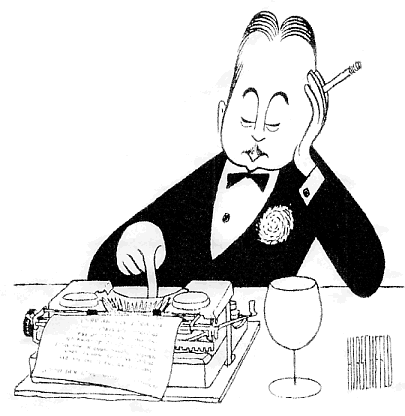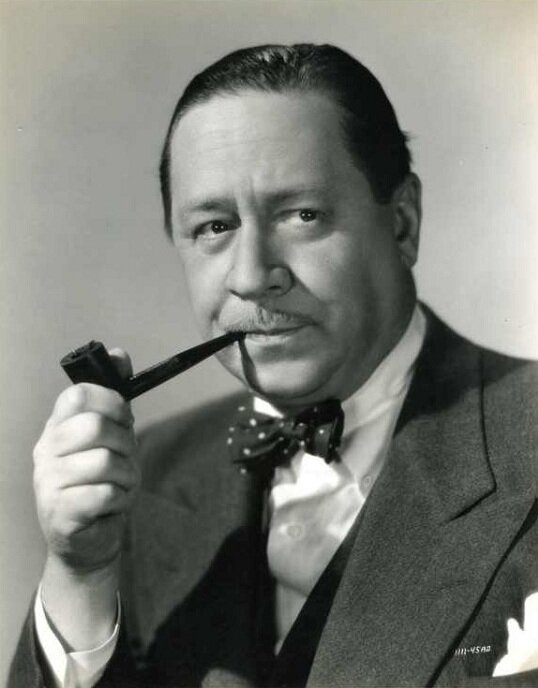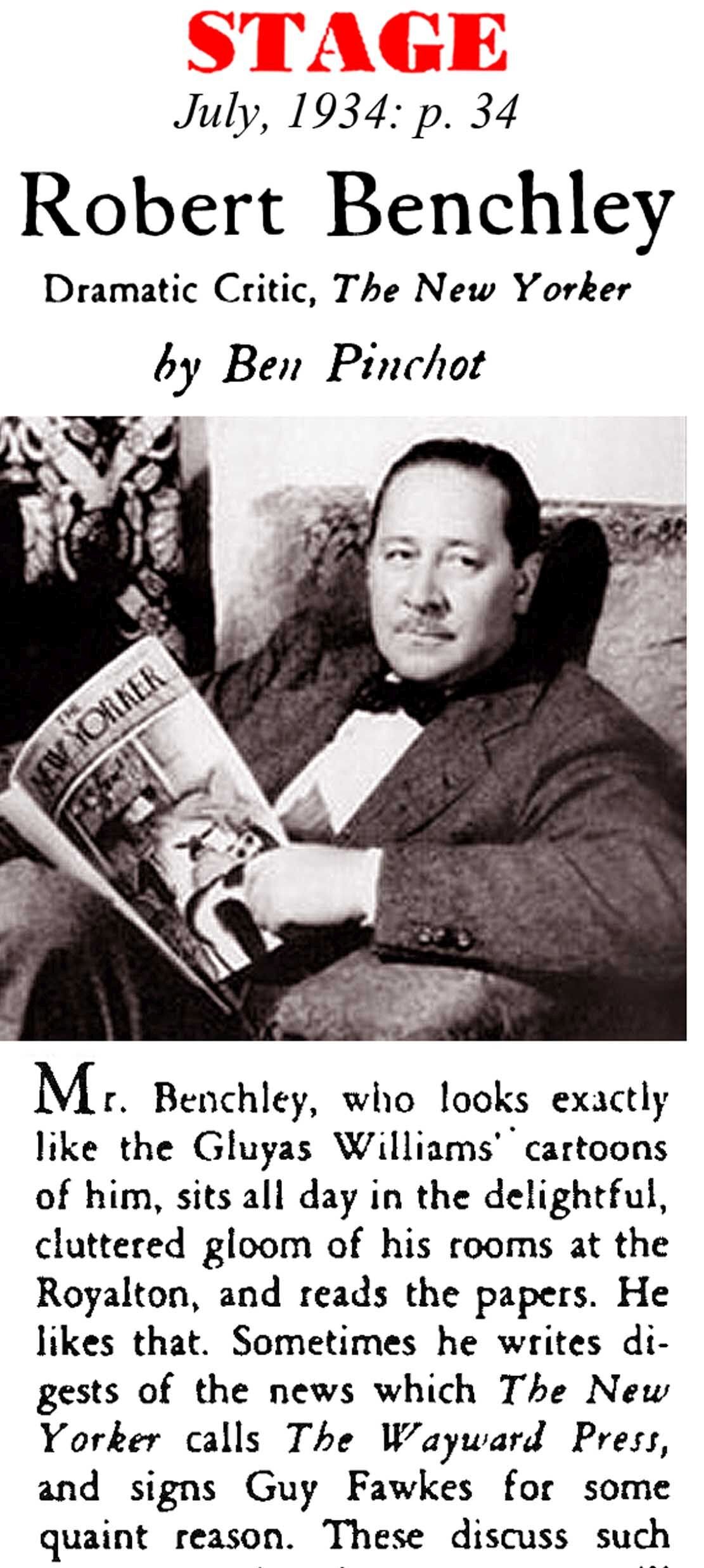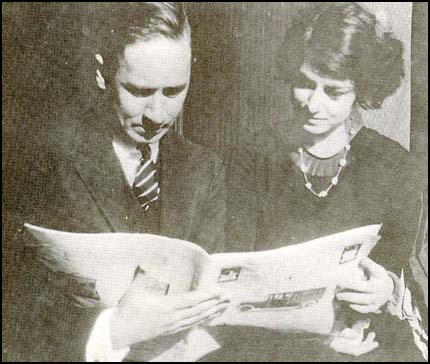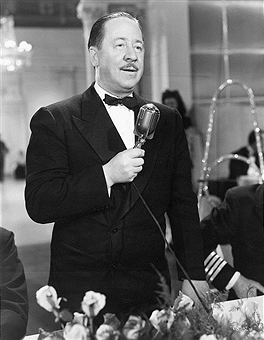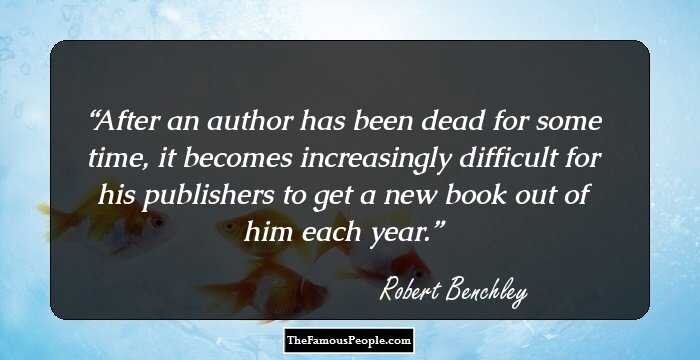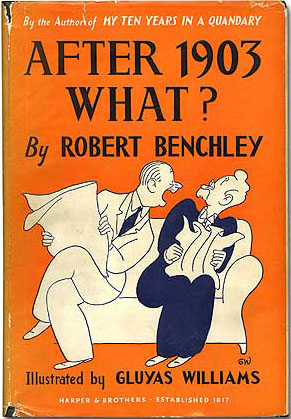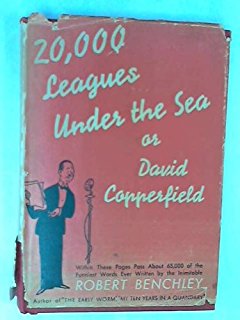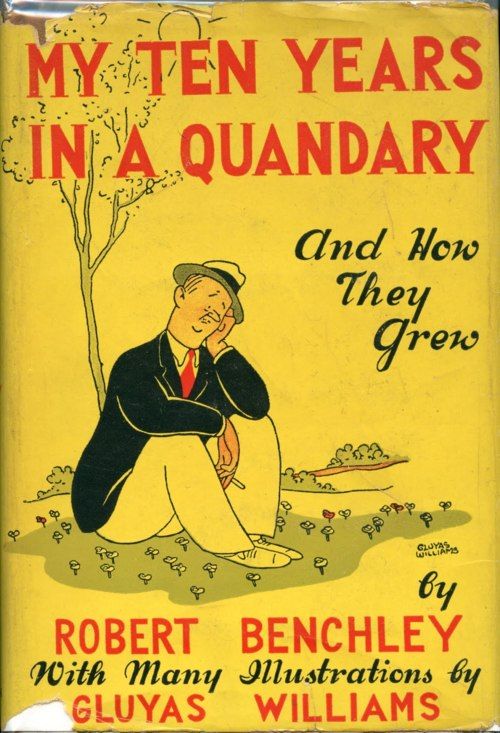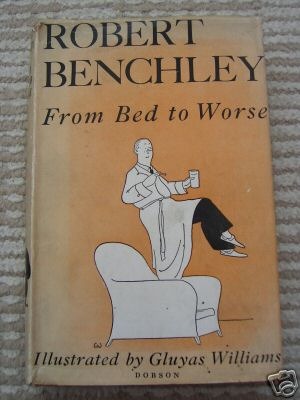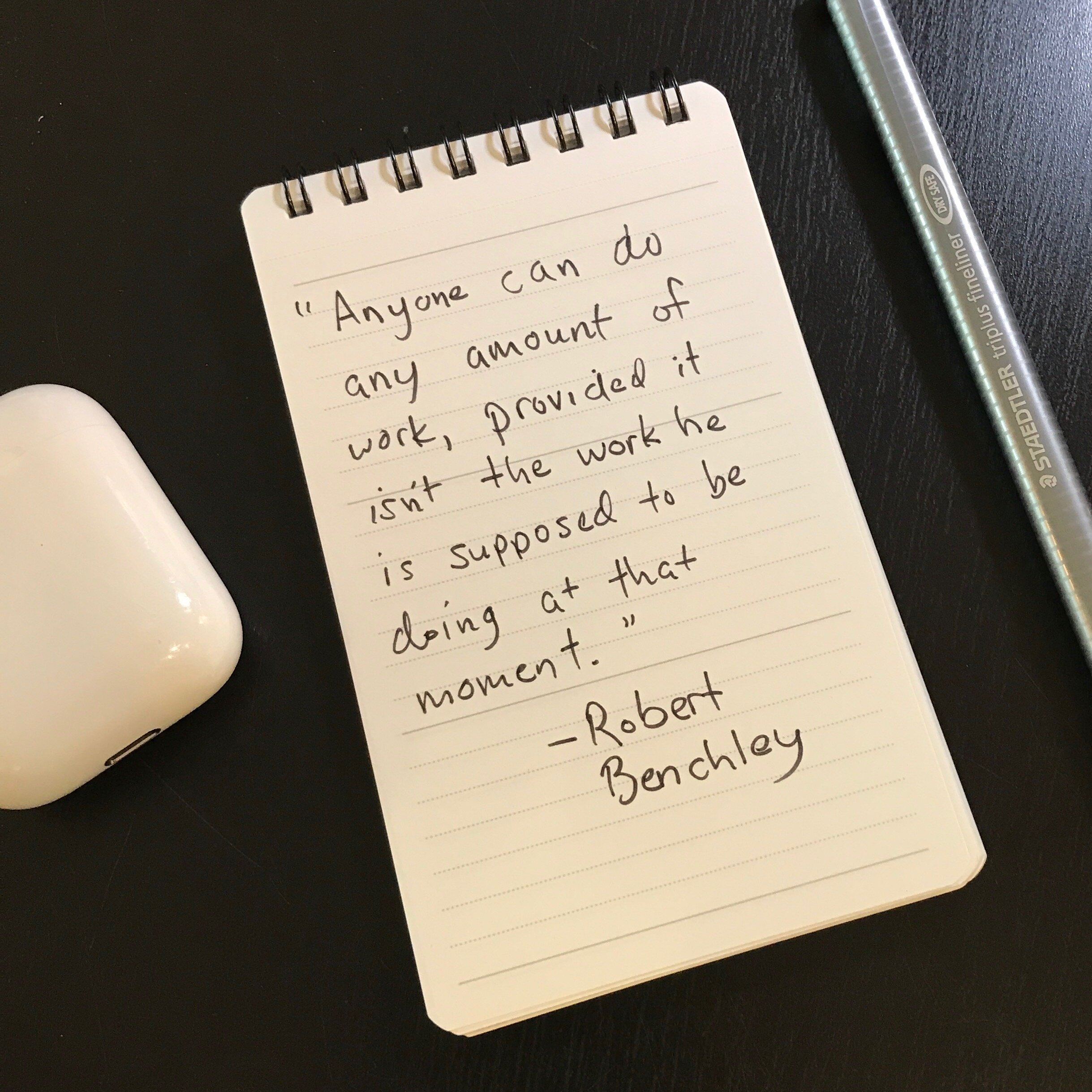WHY WE LAUGH, OR DO WE?
Comedians yammer on and on, but humorists are a somber bunch. Though funny in print, their party personas tend to brooding. Their lives are often a mess. You don’t have to be Freud to see that sorrow is the soul of wit. But meet Robert Benchley.
During the Depression, Benchley was asked for a brief bio.
BORN: Isle of Wight, September 15, 1807. Shipped as a cabin boy on the Florence J. Marble, 1815. Arrested for bigamy and murder in Port Said, 1817. Released 1820. Wrote A Tale of Two Cities. Married Princess Anastasia of Portugal, 1831…Wrote Uncle Tom’s Cabin, 1850… Began Les Miserables, 1870, finished by Victor Hugo…Died 1871. Buried in Westminster Abbey.
Benchley’s mock bio hid an upbringing so ordinary it does not bear repeating. Still, here goes. Born in very unfunny Worcester, Massachusetts, he grew up sadly lacking the pathos that demands joke after joke. Benchley was the pampered son of prosperous parents, groomed for corporate board rooms. He declined such a fate, however, preferring to mock it. The mocking began early. While at Philips Exeter,Benchley wrote his senior thesis on “How to Embalm a Corpse.” Thus began a lifelong penchant for laughing at death. But death would not have the last laugh.
At Harvard, Benchley’s impromptu after dinner speeches amused fellow frat boys with pseudo-serious nonsense, ala Monty Python’s John Cleese. One night he might be a government official telling Harvard “what we are doing down there in Washington!” Another saw him a returning explorer ad-libbing “Through the Ailmentary Canal with Gun and Camera.” When he graduated, with World War I underway, he was urged to grow up. He refused.
While working as an ad copywriter, Benchley submitted humorous essays to magazines. In an America already glutted by expertise, his touch was deft and delightful. One essay reviewed “The Social Life of the Newt.” In “The Most Popular Book of the Month,” he wrote a review of the phone book. “It is the opinion of the reviewer that the weakness of plot is due to the great number of characters which clutter up the pages…”
Hired as drama critic for LIFE, Benchley perfected a rambling style that spoofed grave issues of the day. Titles suggest his zaniness. “Coffee vs. Gin,” “All Aboard for Dementia Praecox,” ”The Menace of Buttered Toast,” “Why We Laugh — or Do We?”
It was the perfect time and place to be a humorist — New York in the 1920s. Benchley began the decade as editor of Vanity Fair. He lasted seven months. Seems elite readers didn’t appreciate the wordplay played by Benchley and his new partner in crime — Dorothy Parker. When Parker was fired, Benchley resigned and the two became inseparable, sharing an office so cramped, Parker recalled, “that an inch smaller and it would have constituted adultery.”
Benchley and Parker soon held down one corner of the Algonquin Round Table, that collection of wits whose quips are still repeated. (Asked to use ”horticulture” in a sentence, Parker said, “You can lead a whore to culture, but you can’t make her think.”) But while Parker and other regulars dissolved into drink, Benchley went to Hollywood.
In 1922, the Algonquin wits did a stage revue of spoofs. Benchley’s fumbling speech, “The Treasurer’s Report” stole the show. He was soon repeating the speech in a Broadway review, and in a 1928 film. He went on to make 48 short films, affecting a dapper, bow-tied persona that is now sadly dated unless you happen to be John Hodgman.
As Americans struggled through the Depression, Hollywood cast Benchley as faux expert in dozens of films. “How to Watch Football,” “How to Sleep,” “How to Sub-let.” He took fame in stride, continuing to make the world his straight man.
“I don’t trust that ocean,” he said while viewing the Pacific. “It’s just pretending to be peaceful, waiting for the right time to sweep up and in and over everything.” Then there was the time, touring Europe, when he cabled an editor from Venice: “Streets full of water. Please advise.”
The witticisms were cut short in the fall of 1945. Hospitalized with profuse bleeding, he suffered a cerebral hemorrhage and died at the sobering age of 56. The last joke came when a Hollywood funeral home shipped his ashes east. When Benchley’s wife took the urn to the family home on Nantucket, she found it empty.
“You know,” she told their two sons, “I can hear him laughing right now.”
LOVE BENCHLEY? CLICK HERE TO VISIT THE ROBERT BENCHLEY SOCIETY
